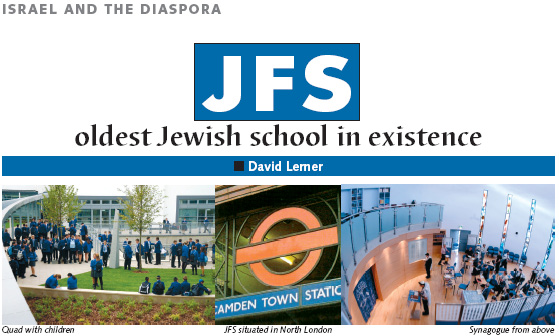“Law Lords” to JFS: You’re Not So Free
 There has been a fair amount of commentary regarding a decision of the Supreme Court of the United Kingdom (formerly the Lords of Appeal in Ordinary and part of the House of Lords) in a matter called R (on application of E) v. Governing Board of JFS.
There has been a fair amount of commentary regarding a decision of the Supreme Court of the United Kingdom (formerly the Lords of Appeal in Ordinary and part of the House of Lords) in a matter called R (on application of E) v. Governing Board of JFS.
The case involved the desire of a man referred to only as E to have his son, M, admitted to London’s prestigious Jewish Free School. There are many more applicants than spaces in the school and it gives preference to children who are recognized as Jewish either by the rule of matrilineal descent derived from Deuteronmomy 7:3-4 (“… neither shall his daughter take on to thy son/For they shall turn thy son away from following me”) or by an Orthodox conversion (i.e., one recognized by the Office of Chief Rabbi of the United Hebrew Congregation of the Commonwealth).
E is Jewish but M’s mother is a former Roman Catholic whose conversion was supervised by a Reform rabbi, so was not recognized by the OCR.
M was denied admission and E sued, arguing that the preference violated the Racial Relations Act of 1976 which forbids discrimination on the basis of ethnicity. Is that what happened?

 Thank you to Professor Slavin for asking me, back in my first month as a wide-eyed 1L, to be on the blog. I thank you for both your confidence in me and this opportunity to attempt to prove you correct.
Thank you to Professor Slavin for asking me, back in my first month as a wide-eyed 1L, to be on the blog. I thank you for both your confidence in me and this opportunity to attempt to prove you correct.